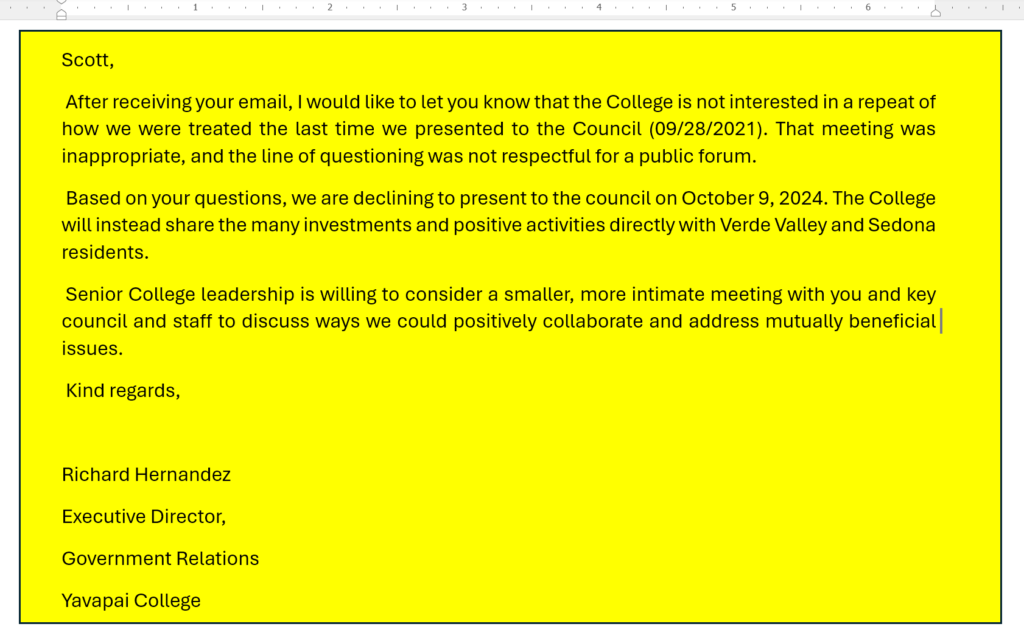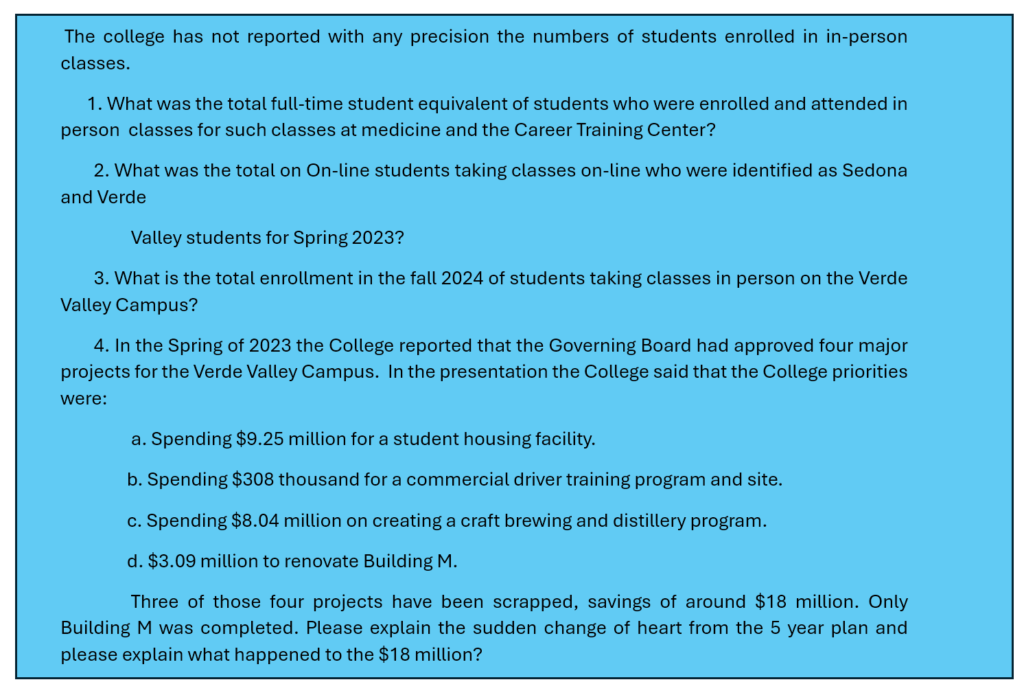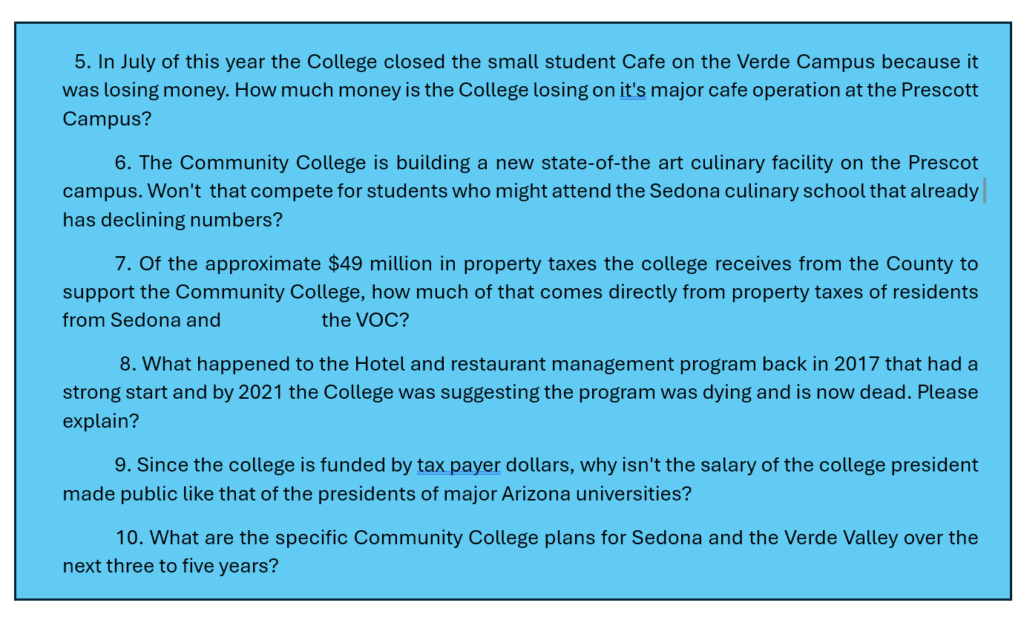Despite the significant income gap, poverty level not quite as bad as expected
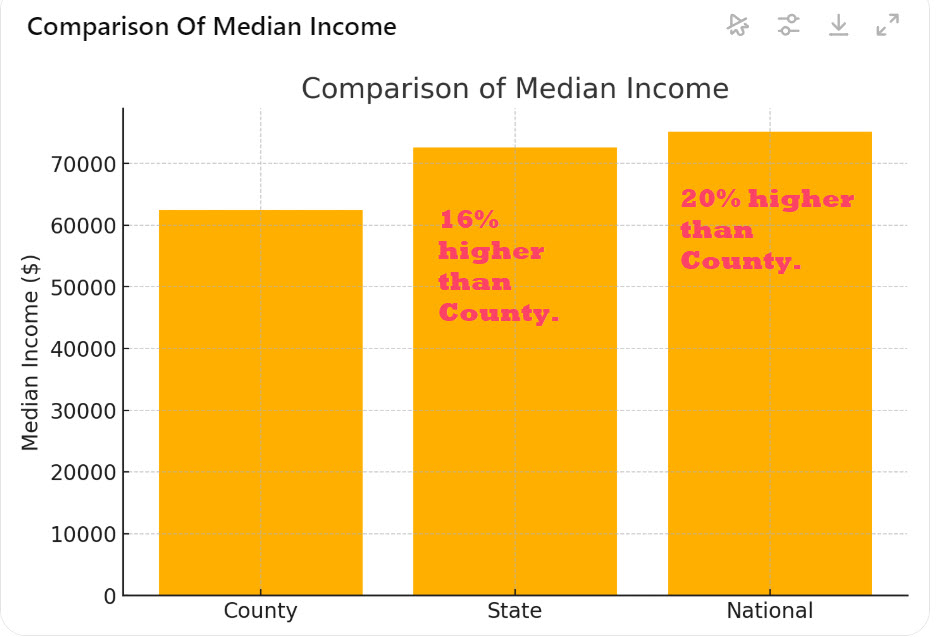 At the January 28, 2025, meeting of the Yavapai Community College District Governing Board, Community College economist and data analytics expert Ryan Jones presented an analysis of income levels and the rate of poverty in Yavapai County.
At the January 28, 2025, meeting of the Yavapai Community College District Governing Board, Community College economist and data analytics expert Ryan Jones presented an analysis of income levels and the rate of poverty in Yavapai County.
Jones reported that the county’s median income is significantly lower than state and national figures. He noted that Yavapai County workers median income is $62,430. The state median income is $72,581, which is 16% above that of Yavapai County. , Nationally, the median income is $75,149, which is 20% above that of Yavapai County workers.
Examining poverty levels, Jones expressed some surprise that the county’s poverty rate, at approximately 12%, was not higher given the lower wages. However, he cautioned that this figure likely does not fully reflect the county’s high cost of living. If adjusted for local living expenses, the poverty rate would likely be higher, he said.
 At its October meeting, Yavapai Community College (YCC) leadership informed the District Governing Board that it has adopted a strategy of annually requesting a one percent increase in County property taxes. This incremental approach is set to begin this year, under the guise of softening public reaction to periodic hikes.
At its October meeting, Yavapai Community College (YCC) leadership informed the District Governing Board that it has adopted a strategy of annually requesting a one percent increase in County property taxes. This incremental approach is set to begin this year, under the guise of softening public reaction to periodic hikes. Tuition increases at Yavapai Community College are annually approved by the District Governing Board with little significant questioning, discussion, or commentary. The meeting on October 29, concerning the requested tuition increase for the 2025-2026 academic year, was no exception. It mirrored last year’s presentation of the topic, which lasted just eight minutes. This year, the presentation and Board vote took only twelve minutes of the meeting.
Tuition increases at Yavapai Community College are annually approved by the District Governing Board with little significant questioning, discussion, or commentary. The meeting on October 29, concerning the requested tuition increase for the 2025-2026 academic year, was no exception. It mirrored last year’s presentation of the topic, which lasted just eight minutes. This year, the presentation and Board vote took only twelve minutes of the meeting. Once again, Yavapai Community College District Governing Board members were summoned by the Community College leadership into a closed executive session to discuss the potential land purchase or land lease in Prescott. This secretive meeting, which delayed the start of the general meeting by over an hour, required a last-minute agenda change, moving the executive session from its original position as the final agenda item.
Once again, Yavapai Community College District Governing Board members were summoned by the Community College leadership into a closed executive session to discuss the potential land purchase or land lease in Prescott. This secretive meeting, which delayed the start of the general meeting by over an hour, required a last-minute agenda change, moving the executive session from its original position as the final agenda item.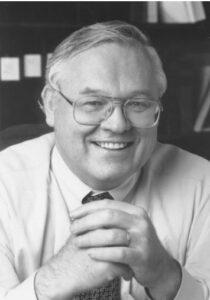
 Yavapai Community College launched a weekly podcast in October, aiming to cover a wide range of topics, including academics, athletics, campus life, and more. You can listen to a podcast
Yavapai Community College launched a weekly podcast in October, aiming to cover a wide range of topics, including academics, athletics, campus life, and more. You can listen to a podcast 

